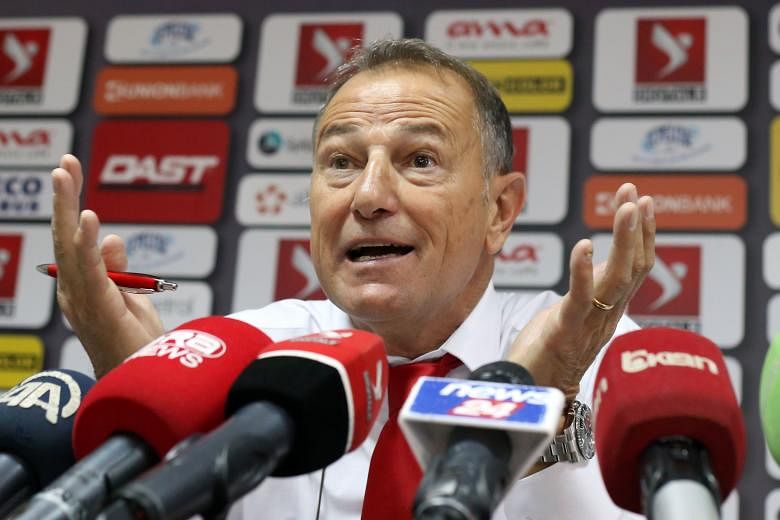TIRANA • Italian coach Gianni de Biasi was just the man Albania needed to turn one of European football's poorest, most unsuccessful teams into match winners after decades of failure on the international stage.
A solid midfielder in his playing days, he forged a reputation as a coach for saving lost causes, either gaining promotion or avoiding relegation from seemingly unwinnable positions.
So, taking over the Albania national team in December 2011 seemed the perfect match, and little under four years later Albania are headed for Euro 2016 in France after qualifying automatically from a pool that included group winners Portugal, Denmark, Serbia and Armenia.
It is a remarkable achievement for a country whose only international success was winning the long-defunct Balkan Cup in 1946.
It is fair to say that its three million population did not have a lot to celebrate. Albania have never reached the World Cup and until last week, had never come close to the European Championship either. But de Biasi has changed all that.
Albanian Football Association chairman Armando Duka, tired of always losing out, chose the Italian to change things - and he quickly made an impact.
After their first match under his guidance, against Georgia in February 2012, he wrote the players a letter which has proved somewhat prophetic.
"We start today building the base to become great. I have faith in you and will be there for you," spelling out elsewhere the words "fight", "victories" and "tears for the shirt" in bold type.
And, after Albania qualified on Oct 11, he spoke of the jokes at his guru-like approach and his global search for players who could represent the country.
"When I said Albania could do it, they laughed at me," he said. "But we are the kind of team who could cause trouble to anyone because we are a team with a big T.
"Our power is our group."
One of the key elements of Albania's new-found success is that for the first time, de Biasi and his assistant, Paolo Tramezzani, were handed a ticket to fly round the world to find eligible players.
They flew as far as China and Australia to watch 148 Albanians and ethnic Albanians from the Balkans who were either born or raised mainly in western Europe or playing elsewhere.
"We had a chance others did not have. We could, for the first time, decide our own fate, pick Albanians anywhere, and convince them to play for us," said veteran captain Lorik Cana, born in Kosovo but playing for Nantes in France.
He is the only player from before de Biasi's arrival still in the team. All the rest have come into the side in the last three years, although some slipped through the net: Xherdan Shaqiri and Granit Xhaka are among six Albanians playing for the Swiss, while Shkodran Mustafi plays for Germany.
Xhaka's brother, Taulant, does play, as do many others who could not make it for Switzerland, Germany or Belgium.
"Had the national team come out of the home league, they would not have made it to France. But they all are quality players from foreign leagues, and de Biasi picked the best," said Gezim Sinemati, one of Albania's leading sports writers.
Astrit Hafizi, who coached the team from 1996 to 1999, also gave credit to the expanded Euro 2016 format and to Duka's initiative for improving the team's financing and infrastructure.
"Initially, we thought Portugal and Serbia would make it and we would compete with Denmark. It did not cross our mind the others would make more mistakes than us," Hafizi said.
REUTERS

